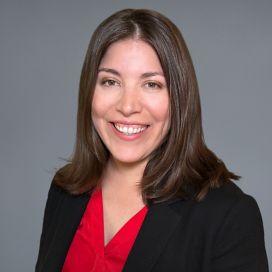Head Start Disability Services Coordinators (DSC) Study

Problem
Head Start lacked national data on the Disability Services Coordinator (DSC) workforce responsible for coordinating services for children with disabilities.
Since its inception, Head Start has prioritized services for children with disabilities. Federal law requires that at least 10 percent of enrolled children be eligible for services under the Individuals with Disabilities Education Act (IDEA). Yet, little is known about the professionals who coordinate these services—DSCs—or how they work with families, educators, and community partners to support children with disabilities. The Office of Planning, Research, and Evaluation (OPRE) and the Office of Head Start (OHS) commissioned this study to fill that gap. The findings from this study provide a national picture of the DSC workforce and the services they help deliver, informing future policy, technical assistance, and program improvement.
Solution
NORC conducted the first nationally representative study of the Head Start DSC workforce.
NORC, in partnership with SRI International and consultant Amanda Schwartz, designed and implemented a rigorous, mixed-methods study to examine the roles, qualifications, and practices of DSCs in Early Head Start and Head Start programs. NORC collaborated closely with OPRE, OHS, and expert workgroups, including representatives from tribal and migrant communities, to conduct the study. NORC fielded two national surveys, one of program directors and one of DSCs, and conducted qualitative interviews with DSCs to explore their roles, responsibilities, training, and collaboration practices. The resulting data provide a detailed, nationally representative picture of how Head Start programs support children with disabilities and the professionals who lead these efforts. NORC’s expertise in early childhood education, disability policy, and large-scale data collection helped ensure high-quality, actionable findings.
Result
The study offers the first national data on DSCs and informs policy, training, technical assistance, and future research on inclusive early childhood services.
Findings from the study provide OPRE and OHS with a comprehensive understanding of the DSC workforce, including how coordinators identify and support children with disabilities, collaborate with community partners, and help programs meet federal requirements. They also highlight promising practices and areas for improvement, supporting the development of targeted training and technical assistance. The study team produced multiple data tables reports and a public-use dataset to support future research. Ultimately, the study will help Head Start programs better serve children with disabilities and their families.
Related Tags
Project Leads
-
Alicia Garcia
Vice PresidentPrincipal Investigator -
Rachel (Kappel) Van Vleet
Research ScientistProject Director -
Shannon TenBroeck
Senior Research DirectorPrior Project Director -
Carol Hafford
Senior FellowTribal IRB Lead










